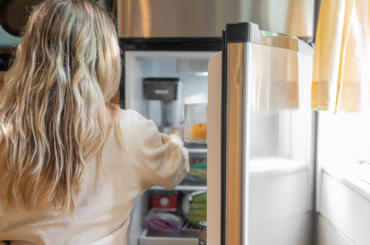If our parents, grandparents, or even earlier generations had traumatic experiences that they never healed from, the resulting pain and dysfunction can be passed down to us—and even affect our parenting skills.
How do we break the cycle and stop more trauma from being passed down to our kids?
It may be too late to prevent horrible events and behaviors of the past, but that doesn’t mean it’s too late to heal. Remember this: Trauma only becomes generational if it goes unresolved! Caring for ourselves and processing our own trauma helps us take better care of our kids, and helps prevent the cycle from continuing.
What is generational trauma?
Negative emotional baggage that is passed down from one generation to the next, stemming from unhealed trauma in the past.
Possible sources of generational trauma
You may have heard of generational trauma stemming from large-scale, long term traumatic experiences such as living through slavery in the United States, or enduring the Holocaust during World War II. But this type of inherited trauma can be rooted in other types of extreme, prolonged stress, including:
- Physical, emotional, or sexual abuse
- Natural disaster, epidemic, pandemic, violent events
- Loss of loved one(s)
- Persistent racism, oppression, or discrimination
- Neglect or abandonment
- Injury, illness, disability, untreated mental illness
- Being around substance abuse or domestic violence
- Poverty and food insecurity
How it’s passed down
Studies have shown that traumatic events can cause a chemical change in a person’s DNA, which is then passed down to their offspring (and future generations). These genes can be expressed in new ways, potentially making future generations more prone to developing conditions such as PTSD, obesity, an elevated stress response, or any number of other physical and mental health issues.
Furthermore, exposure to trauma can impact the way we relate to and connect with others. It can spark substance misuse disorders, clinical anxiety, depression, and a host of other factors that deeply affect our parenting. As a result, unresolved trauma in one generation can cause them to behave in ways that unintentionally further traumatize their children or grandchildren.
Here’s an example of how unhealed trauma in one generation can show up in future generations.
| 1st Generation (Grandparents) | War, PTSD, poverty, alcoholism, domestic violence |
| ↓ | ↓ |
| 2nd Generation (Parents) | Physical and emotional abuse, repressed anger, untreated mental illness, alcoholism |
| ↓ | ↓ |
| 3rd Generation (Children) | Depression, anxiety, low self-esteem, self-destructive behaviors |
How it could show up in your parenting
The trauma we and our families have endured aren’t always present in obvious ways, but can show up in our daily mindset and parenting habits. Understanding that trauma is behind some of these behaviors can help us recognize them for what they are as they happen, and help us slowly work toward healing so that these habits aren’t perpetuated.
- Constant fear or guilt of acting like your own parents did
- Being overly protective or controlling of your kids
- Overcompensating by giving kids everything they want
- Overreacting to small mistakes
- Shutting down or blowing up when kids are loud, aggressive, etc.
- Trying to push away kids’ negative emotions
- Being obsessed with academic success
- Not trusting others to care for your kids
How it could show up in kids
The signs of dealing with unprocessed trauma are different for everyone, but these are some of the signs to look for that could indicate that generational trauma is affecting your kids.
- Irritability and other signs of anxiety and/or depression
- Disordered eating
- Trouble regulating emotions
- Self-harm
- Substance abuse
- Nightmares or insomnia
- Behavioral issues at school
- Lack of academic motivation
- Distrust of doctors, authority figures, etc.
- Fear of asking for help
How to avoid passing it on
Working through the trauma as you experience it—whether you’re the first generation or the fifth—is the best way to stop the cycle and avoid passing it on to your own children. Here are some steps to start with:
- Talk to kids in age-appropriate ways about past family trauma, instead of avoiding the topic.
- Work through your trauma by speaking about it with therapists, friends, and/or support groups.
- Create an open dialogue about mental health in your family, including how mental health services have helped you (if applicable).
- Recognize harmful patterns in your own parenting, and find solutions with your partner/co-parent, family/friends, or therapist.
- Seek out family therapy—there are free and low cost therapy options if cost is a barrier to getting the care you need.
- Engage in meaningful projects and traditions with your kids that they’d be proud to pass on one day.







